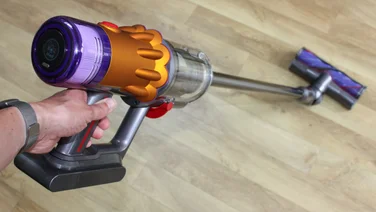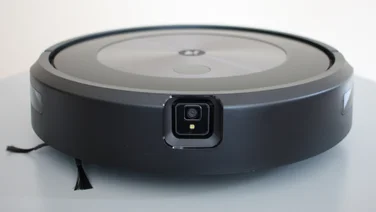To help us provide you with free impartial advice, we may earn a commission if you buy through links on our site. Learn more

Summer is in full swing, and with it comes an increase in insect activity. Houseflies are one of the most irritating of the bunch – adept at getting into houses through the smallest of cracks, flies only have a short lifespan but can reproduce in huge numbers, and thanks to their questionable diet, the overwhelming majority of them carry pathogens that can be harmful to humans.
Of course, you’re never going to be able to stop the odd fly from buzzing in and out of your home. But considering how quickly they can reproduce, you don’t want them hanging around and causing an infestation. Here’s what the experts recommend to stop flies from becoming a problem.
How to stop flies getting into your house
The best way to stop flies from becoming an issue is to make sure your home isn’t a welcoming environment for them. Here are our experts’ top tips:
1. Keep your house clean
“Flies are drawn to food residues and moisture,” explains Sophie Thorogood, technical training manager at Pest-Stop. “Make sure to wipe down surfaces, clean up spills and avoid leaving dirty dishes in the sink or on countertops. They also breed in decaying waste, making household bins a prime hotspot. To reduce fly activity, make sure rubbish is removed regularly and bins are kept tightly closed.”

Don’t forget about food either, as Daniel Baldwin, Board Certified Entomologist at Hawx Pest Control explains, “Store food in airtight containers. House flies are always searching for easy access to food, water and shelter. Store cereals, sugar, flour, pasta, sweets and fruits in the refrigerator or in tight-sealing containers that houseflies can’t penetrate. And wash dirty dishes right after meals.”
“Don’t forget to clean your pets’ living areas, too, since flies are attracted to pet waste as well,” reminds Daniel. “Clean up pet faeces as soon as possible and dispose of nappies in airtight bags.”
2. Seal entry points
“Flies can squeeze through the tiniest gaps around doors, windows and vents,” says Sophie. “Check for any cracks or tears in screens and seals and repair them to stop flies from getting inside.”
“Don’t leave doors and windows open,” advises Daniel. “Flies can easily make their way into your home if given the opportunity. If you need to open windows or doors for ventilation, make sure to install screens. This allows fresh air to circulate while still keeping flies out.”
3. Control moisture levels
“Flies usually choose to live close to their preferred food sources and near suitable breeding grounds, which are typically warm, moist locations,” explains Daniel. “If flies don’t have those warm, humid spots to lay their eggs or don’t have access to the foods they’re attracted to, they are less likely to want to enter your house.”
Houseplants can also attract flies, as Sophie explains, ““Damp soil can act as both a breeding ground and a source of moisture for fungus gnats – a common type of small indoor fly. To prevent this, avoid overwatering your houseplants and ensure the soil dries out between waterings. It’s also important to avoid any standing water in plant trays. Placing yellow sticky traps near plants can help catch any flies that are already present.”
4. Manage outdoor lighting
“Flies are attracted to light sources, especially at night. Turning off unnecessary outdoor lights or switching to warm-coloured bulbs can help reduce the number of flies hovering around your home,” advises Sophie.

By the same token, it’s also important to turn off lights in your home if windows and doors are open at night. This is another way in which window screens can be useful, particularly if it’s still warm as night draws in.
5. Know when to call in the professionals
“If you suddenly start seeing flies swarming in your house, it means there’s likely an infestation in or near your home,” says Daniel. “Dozens of eggs may have recently hatched and could be nesting in a warm, moist area, such as the garage, attic or even your garden.”
If this is the case or you’re already dealing with a substantial fly problem, you’ll be better off calling in professionals. They will be able to safely and effectively deal with pests, leaving your home a more hygienic place to be.
Methods and natural remedies to deal with flies in your home
Light traps
“Insect light traps are one of the most effective ways to manage indoor fly problems,” says Sophie. “These devices use energy-efficient LED lamps to attract and capture flies, helping to maintain a cleaner, more hygienic environment. For best results, install light traps at eye level and away from ceilings, where they’ll be most effective in intercepting flying insects.”
Natural remedies
For those looking for natural alternatives, Sophie recommends the following fly repellents:
- Cayenne pepper spray – “Mix one teaspoon of cayenne pepper with a cup of water in a spray bottle and mist entry points. The strong scent repels flies, keeping them from entering your home.
- Lavender – Growing lavender outside, keeping a bouquet indoors or using lavender essential oil near doors and windows will naturally discourage flies.
- Citrus peels – Placing citrus peels in areas where flies tend to gather provides a simple yet effective way to keep them at bay.
- Basil plants – Basil is not only a great addition to your kitchen but also an effective fly repellent. Keeping a pot near windows or entryways helps reduce fly activity indoors.
- Apple cider vinegar trap – A simple homemade trap using apple cider vinegar and washing-up liquid in a covered glass with small holes can lure and trap flies.
You could also try a natural fly repellent spray. As Daniel explains, “a mixture of equal parts water and vinegar can be sprayed in areas where flies are present. Though there’s not a ton of science to back them up, many people swear by natural remedies like cloves and essential oils (namely eucalyptus and peppermint). There’s no harm in giving them a try – they add a lovely fragrance to the air, to say the least!”
Just remember – there’s no guarantee that natural remedies will work. If the situation is worsening, consider more aggressive tactics.






